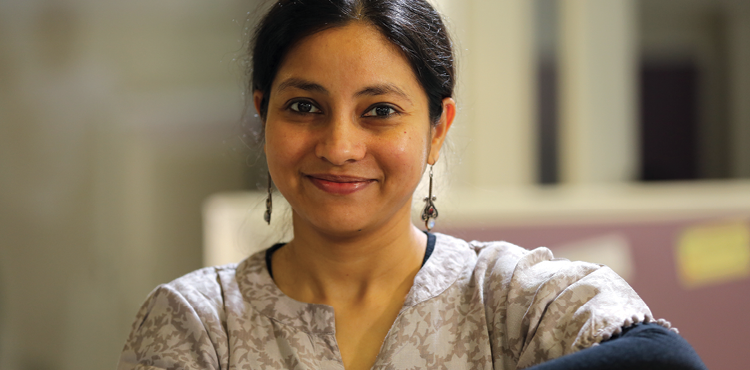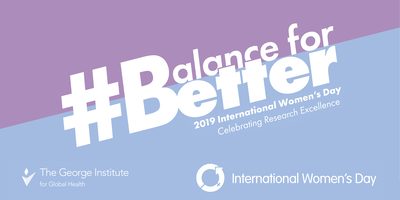
Arpita Ghosh: International Women's Day 2019 Profile
Arpita Ghosh’s work cuts across many areas of public health, including child health, nutrition, elderly health and wellbeing, and chronic diseases, particularly cancer. She joined The George Institute for Global Health in 2018 following nine years of work in the biomedical science sector.
Arpita was first drawn to statistics and biomedical sciences by her interest in figuring out how data can be processed in an efficient manner to answer health-related questions. By introducing statistical thinking and methods to deal with the challenges and opportunities that such data presents, she hopes to improve research outcomes and their related positive impact on populations.
“I am fascinated by how our collective understanding of a phenomenon helps us frame a research question, and how we translate it into mathematical language and use tools such as statistics to study the question and find an answer.”
“This back and forth between domain knowledge, contextual understanding and statistics to better understand the complex interplay between humans and their physical and social environment is an art form that excites me.”
Arpita believes the science and art of processing data, extracting meaning from it, and visualising and communicating it is an important skill in this age of data overload.
“Careers in statistics are among the fastest-growing and top-paying jobs globally. However, statistics is much more than what is commonly branded as ‘analytics’.”
“Statistical methods are built on a foundation of mathematics - they help us account for the uncertainty in real-life data, and interpret the findings and reach possible conclusions in light of that uncertainty.”
To move to a more gender-balanced world, Arpita says we have to foster more educational and employment opportunities for women.
“We have to raise awareness of the prominent role that women have played, and emphasise the importance of recruiting more women to high-level positions.”
Arpita reflects on this year’s International Women’s Day theme, #Balanceforbetter, through a statistical lens.
“Given that one intends to maintain some semblance of work-life balance, it then boils down to a trade-off between quantity and quality of output – very much like an optimisation problem.”



